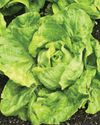
The solution to a gardener’s rough, dirty hands can be found right in the garden that created them. As the season wears on, a gardener’s hands can take a beating. Using overlapping ingredients, let’s make a gardener’s scrub and balm to clean and nourish your most valuable tools: your hands!
I love gardening without gloves, but that dirt manicure ends up damaging the top protective layer of skin. This leaves your skin vulnerable to drying, cracking and becoming inflamed.
Even after wearing gloves a gardener’s hands can use a good deep cleaning. With a focused blend of Castile soap, oils and homegrown herbs you can clean and soothe your hands.
HERBS AS HEALERS
Herbs are a beautiful and bountiful addition to any garden. From companion planting to culinary uses, herbs in the garden just make sense. But we often overlook their innate healing powers.
Much of modern medicine is based on centuries-old herbal wisdom. Often, the trick to using herbs comes down to being able to concentrate their potency and then administer them in a way that the body can readily absorb.
Infusing oils is one of the easiest ways to make the most out of the beautiful herbs we grow. Both balm and scrub making are two-step processes: First, we infuse the oils with herbs. Then, we combine that infused oil with other ingredients. Since there are few ingredients, the quality of them really matters.
CHOOSE YOUR CARRIER OILS
Oils have their own healing properties and different thicknesses, absorption rates and viscosity. A high viscosity rate means a thicker oil that’s more resistant to flowing. They also vary in cost. I’ll often infuse in olive or sweet almond oils and use the other more expensive oils in smaller amounts. Let’s learn the basics of a few of the most common carrier oils so you can make the best product for you and your family’s skin.
This story is from the Hobby Farm Home 2025 edition of Hobby Farms.
Start your 7-day Magzter GOLD free trial to access thousands of curated premium stories, and 9,000+ magazines and newspapers.
Already a subscriber ? Sign In
This story is from the Hobby Farm Home 2025 edition of Hobby Farms.
Start your 7-day Magzter GOLD free trial to access thousands of curated premium stories, and 9,000+ magazines and newspapers.
Already a subscriber? Sign In

The RISE of Opportunist WEEDS
Be prepared to see increasing changes in weeds we fight, such as poison hemlock and poison ivy, and in the crops we grow.

LIVESTOCK Health
Prepare yourself for how to spot symptoms of illness in your farm animals so that you can get them help before it's too late.

CUT FLOWER Farming
If you're considering growing flowers for sale, brush up on these five key things to know before diving in.

WINTER Survival
Keep your land, animals and yourself in good shape this winter with this helpful advice.

COVERAGE CONCERNS
Avoid common insurance mistakes for rural and hobby farm businesses.

FARMER'S GUIDE Berries
Set the stage for tasty strawberries, blueberries and brambles with these soil-boosting garden tips.

Preconditioning CALVES
Follow our step-by-step guide to get more money for your calves.

Soil Conservation
Often, outside of having a specific problem that needs to be addressed, soil conservation isn't something every farmer readily thinks about. Yet conserving the soil should be at or near the top of every farmer owner or manager's list of concerns because absent the prevention of soil erosion, we have the opportunity for another dust bowl.

Year-Round Lettuce & Salad Mixes
It's easy to think of salad greens as just a spring- or fall-garden crop, but it's possible to enjoy freshly harvested lettuces, mustards and more from your own garden year-round.

Barn Improvements
Days are never long enough for a farmer. From dawn to well into the night, tasks arise that often require immediate action. Having to search for tools or equipment is an enormous time waster and incredibly frustrating when you can't find what you need, especially when you know you have it.